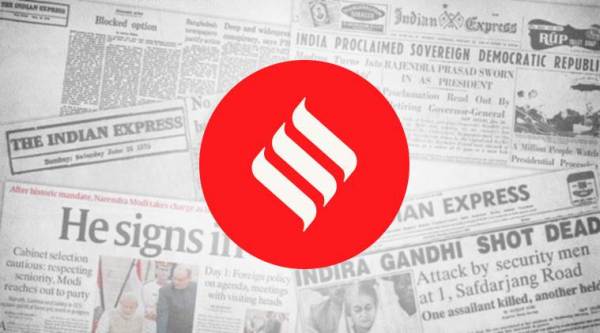Opinion Advani ki baat
He may not matter in the 2019 electoral calculus but his party should listen to his advice on who is an enemy, and who is a rival.

 Since 2014, for all its electoral spread and growing appeal to wider constituencies, the BJP has become a more centralised version of itself, its politics has acquired a harder edge.
Since 2014, for all its electoral spread and growing appeal to wider constituencies, the BJP has become a more centralised version of itself, its politics has acquired a harder edge.
BJP senior LK Advani has urged his party to “look back, look ahead and look within”, on the eve of its Foundation Day, in a blog that breaks a nearly five-year silence and has “democracy”, within and outside the party, more within than outside, as its motif. Advani emphasises a triad of values — satya (truth), rashtra nishtha (dedication to the nation), and loktantra (democracy). But he underlines the last. He writes about “respect for diversity” and “freedom of expression” being the essence of India’s democracy and speaks to a BJP that accuses its political opposition of an agenda to balkanise India and membership of a “tukde tukde gang”, of a BJP that does not treat political adversaries as enemies. He reminds his party of a conception of Indian nationalism that does not paint disagreement as “anti-national”. The day after, for the Narendra Modi-Amit Shah BJP, it would be all too easy to dismiss Advani’s message, and its implied criticism, by targeting him. He has just been denied a ticket from Gandhinagar, after all, the constituency that elected him to the Lok Sabha six times since 1991 — bringing a long and significant parliamentary career to an end. Party president Amit Shah has filed his own nomination papers from Gandhinagar with great fanfare. Therefore, it could be argued, the Advani blog. That may or may not be true. But by reading Advani only for his supposed motives, the BJP would not only be disrespectful to its veteran, it would also risk missing the real takeaway.
The BJP rose to prominence in the late 1980s-early 1990s as the party with a homogenising project. It sought to counter Mandal with Mandir, construct a united Hindu vote bank over and above the caste faultlines on the ground. In those years, Advani was both the main ideologue and mobiliser-in-chief of political Hindutva, his rath yatra from Somnath leaving a trail of violence and blood, and culminating in the demolition of the Babri masjid in 1992. Yet, it is also true that the party and the leader have travelled a distance since — in apparently different directions. Since 2014, for all its electoral spread and growing appeal to wider constituencies, the BJP has become a more centralised version of itself, its politics has acquired a harder edge. The Modi-Shah formulae and certitudes have all but banished dissent within and the party is quick to demonise the opposition outside as pro-Pakistan. On the other hand, and ironically, Advani, relegated to the Margdarshak Mandal since 2014, has become a voice, sometimes even through his silence, for greater tolerance and political civility.
With polls round the corner, the BJP may calculate that Advani’s critique has little or no electoral resonance. But as the political party that has ruled India at the Centre with a majority for the last five years, and which has governments in a majority of the states, the BJP must know that there is another calculus. It will be held to a higher standard, a glimmer of which can be seen in its margdarshak’s message.





